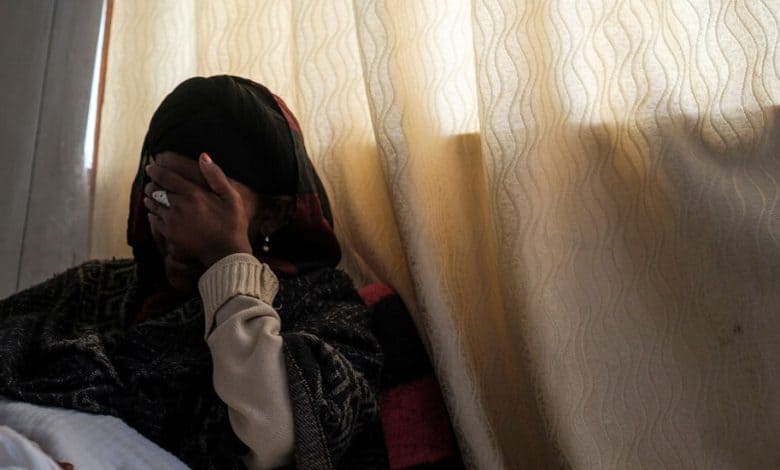When African Women Are Raped, Where Is the Outrage?

In the summer of 2023, while I was negotiating the price of a pair of cloud-shaped wire sunglasses, a man walked behind me and sexually assaulted me. I was at a stall in one of the many open-air markets in Mekelle, Ethiopia’s second largest city.The man touched my body, attempting to feel as much of me as possible. I stood for a few seconds, unsure of what was happening, until his hands went further and his body got closer.
Jolted out of my shock, I turned to face him and started yelling. My mother, who was standing next to me, did her best to diffuse the confrontation and quietly shooed the man away. As soon as he left, many people who had witnessed what happened — from the boys selling peanuts nearby to a woman strolling with her children — laughed. The laughter is what stays with me.
It was not the first time I would encounter the troubling consequences of sexual assault during my trip to Mekelle last year, nor was it the last. My assault was just one of many painful encounters that highlighted the pervasiveness and intense normalization of sexual violence in Ethiopia, especially in regions like Tigray that are warped by other kinds of violence.
Two weeks earlier, I had flown to Mekelle from Brooklyn. It was the first time I was back in Ethiopia in 20 years. One of my reasons for visiting was to speak with women who were survivors of conflict-related sexual violence as part of my work with Tigray Action Committee, a nonprofit my sister and I co-founded to raise awareness about people’s suffering during the two-year civil war between Ethiopia and Tigray, the country’s northernmost regional state. Many of the women I spoke to had been assaulted during the central government’s war on Tigray, which has been described as one of the deadliest of the 21st century with an estimated death toll of over half a million. Although a cease-fire was reached in 2022, sexual violence continued for months after that, countless families remain displaced and the country is at risk of sliding into famine.
Women in Tigray have been subjected to unimaginable crimes during both the war and its ongoing, tumultuous aftermath. Over 100,000 women in Tigray are thought to have experienced conflict-related sexual violence. Health experts recently estimated that over 40 percent of Tigray’s women experienced some type of gender-based violence during the war. Most of them — a whopping 89.7 percent — never received any post-violence medical or psychological support.
Survivors have reported that foreign objects were inserted in their bodies, that their children were murdered in front of them, that they were forced into sexual slavery, starved and intentionally infected with H.I.V. and other sexually transmitted infections. One victim recalled being told that she was being raped because “a Tigrayan womb should never give birth.” Some survivors are now taking care of children fathered by their rapists. Others are likely becoming new survivors of conflict-related sexual violence themselves, with little hope of recourse from the government.